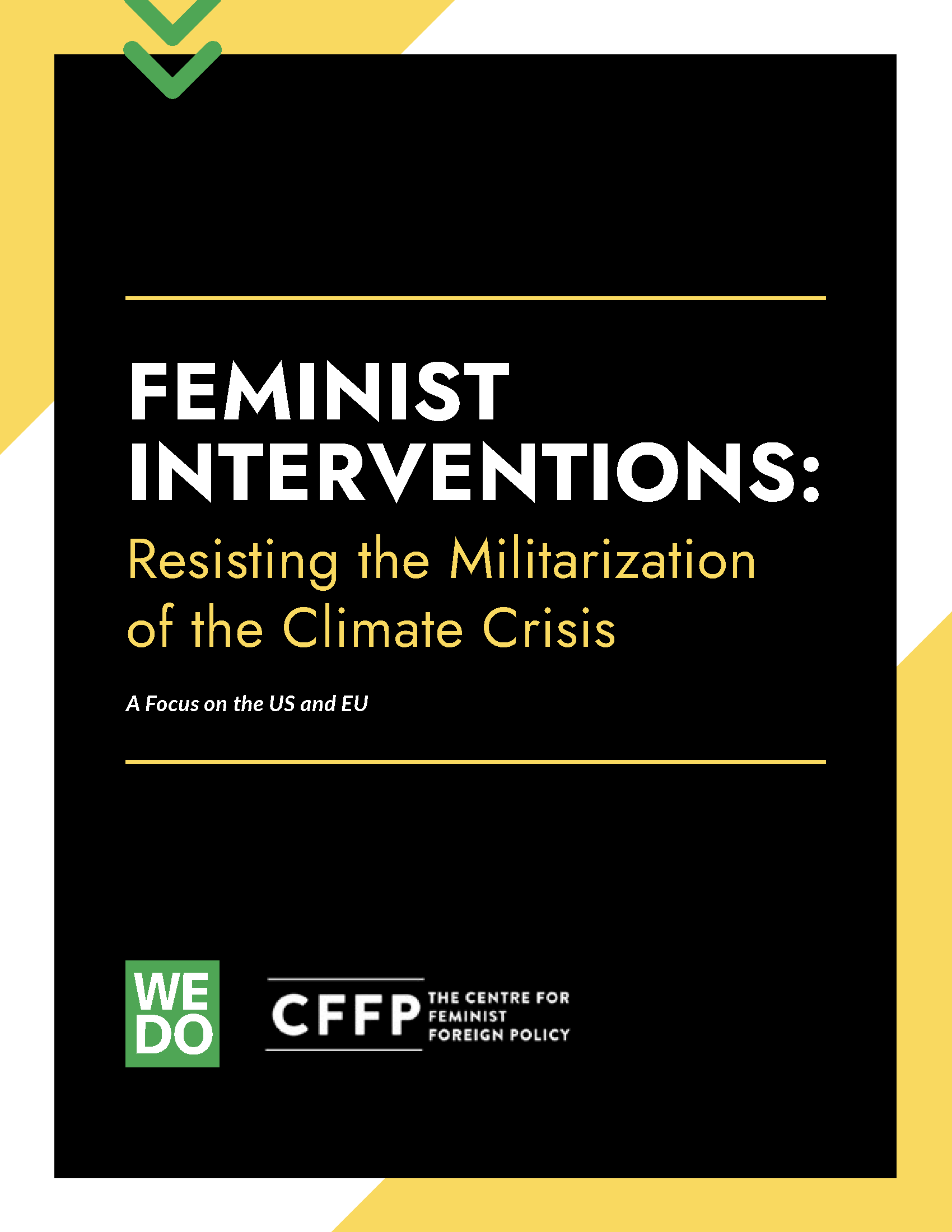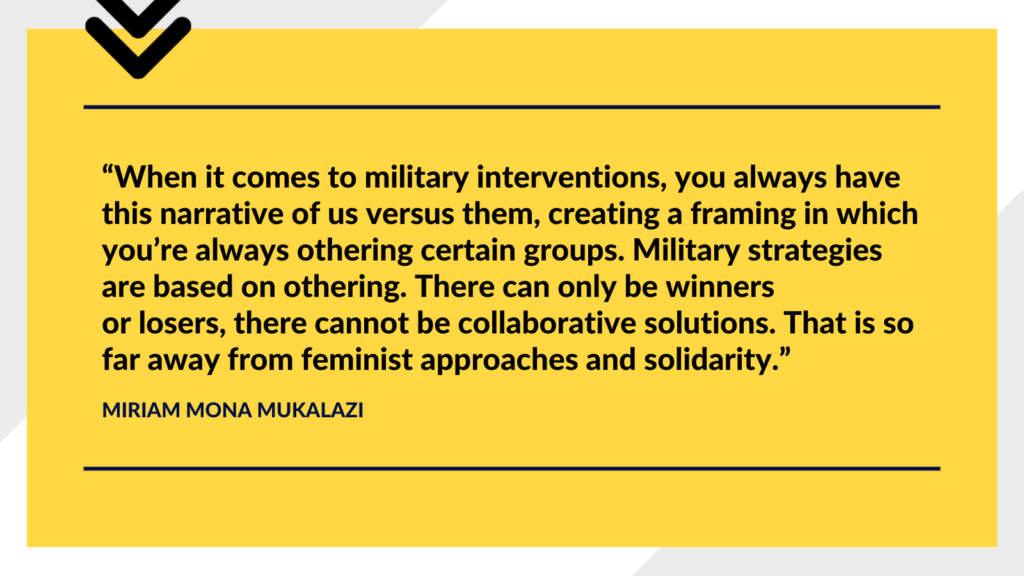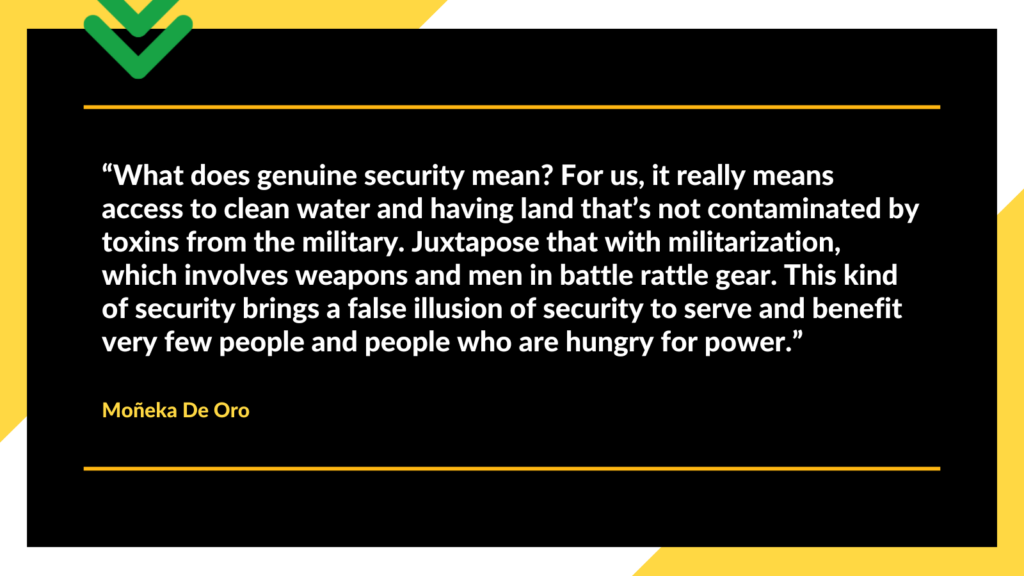In recent years, it has become increasingly common to see the U.S. and EU governments discuss the climate crisis as a security issue, integrating climate change considerations into violent defense, military, and border enforcement strategies.
As governments do this, one question is increasingly posed by feminist civil society: whose security are we really talking about?
The focus of discourse on climate security is often not centered on the well-being of the communities made most vulnerable by the effects of climate change, but on the sustained and increased power, wealth and influence of the states that have historically contributed the most to it.
As many wealthy nations are investing more and more into their militaries, they are under-delivering on their climate finance commitments – diverting crucial resources away from endeavors of mitigating and adapting to the crisis itself. Meaningfully addressing the climate crisis, by contrast, requires an unprecedented response rooted in global cooperation, collaboration, and care.
This report, published with partners at Centre for Feminist Foreign Policy, explicitly challenges the growing and concerning prevalence of militarized responses to the climate crisis.
It highlights why the climate crisis must not be addressed with violence, repression, and militarism – or by policy frameworks that continue to prioritize power, domination, and the procurement of weapons over the well-being of people and our environment. And, it raises awareness of the dangers of responding to a crisis driven by racial, economic and gender injustice with militarized means, and critically, shares experiences of feminist and civil society leaders challenging and naming the securitization of the climate crisis in their lives and work.





